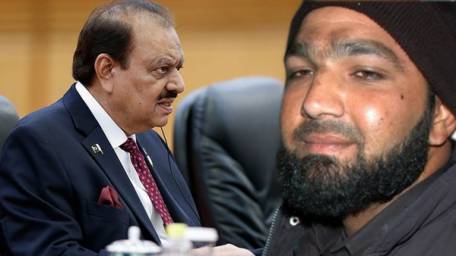The execution of Mumtaz Qadri on the charge of murdering ex Governor of Punjab Salman Taseer has once again reopened the debate whether Qadri should be considered as a hero, who sacrificed his life for an honourable cause, or as a religious bigot and extremist. In the whole matter two questions are of particular relevance. First: was Taseer guilty of blasphemy? Secondly: was Qadri justified in assassinating him? All the available material suggests that Taseer had neither himself done anything that could be specifically considered as blasphemy, nor he had tried to justify any such act on the part of the lady who had been sentenced to death for allegedly having committed blasphemy. If Taseer wanted the lady’s mercy petition to be accepted, it did not amount to blasphemy or if he referred to the blasphemy law as a black law, it did not mean that he was in favour of letting the people commit blasphemy. Perhaps, Taseer had called it a black law because it was being misused to harass the religious minorities, sometimes even by unscrupulous elements within the law enforcement agencies.

There was always fear of miscarriage of justice in the court of law due to our faulty prosecution system. As far as Qadri is concerned, he seems to have sincerely perceived that Taseer was defending a blasphemer and that by speaking against the blasphemy law, Taseer had shown scant regard for the respect and honour of Holy Prophet (PBUH). Irrespective of the fact whether a Muslim acts upon the teachings of Islam or not, he is very sensitive in the matter of honour of his Prophet (PBUH). Love of Prophet (PBUH) is in-built in Muslims. Qadri appears to have thought that our justice system was too weak to act against a high government functionary even if he committed blasphemy. Qadri failed to realize that neither shariah nor law of the land had given him the right to act individually. Imbibed with the love of Holy Prophet (PBUH), he emotionally acted the way he did. Qadri might have languished in jail for an indefinite period but unfortunate for him that the state wanted to assert its authority and he met his fate.